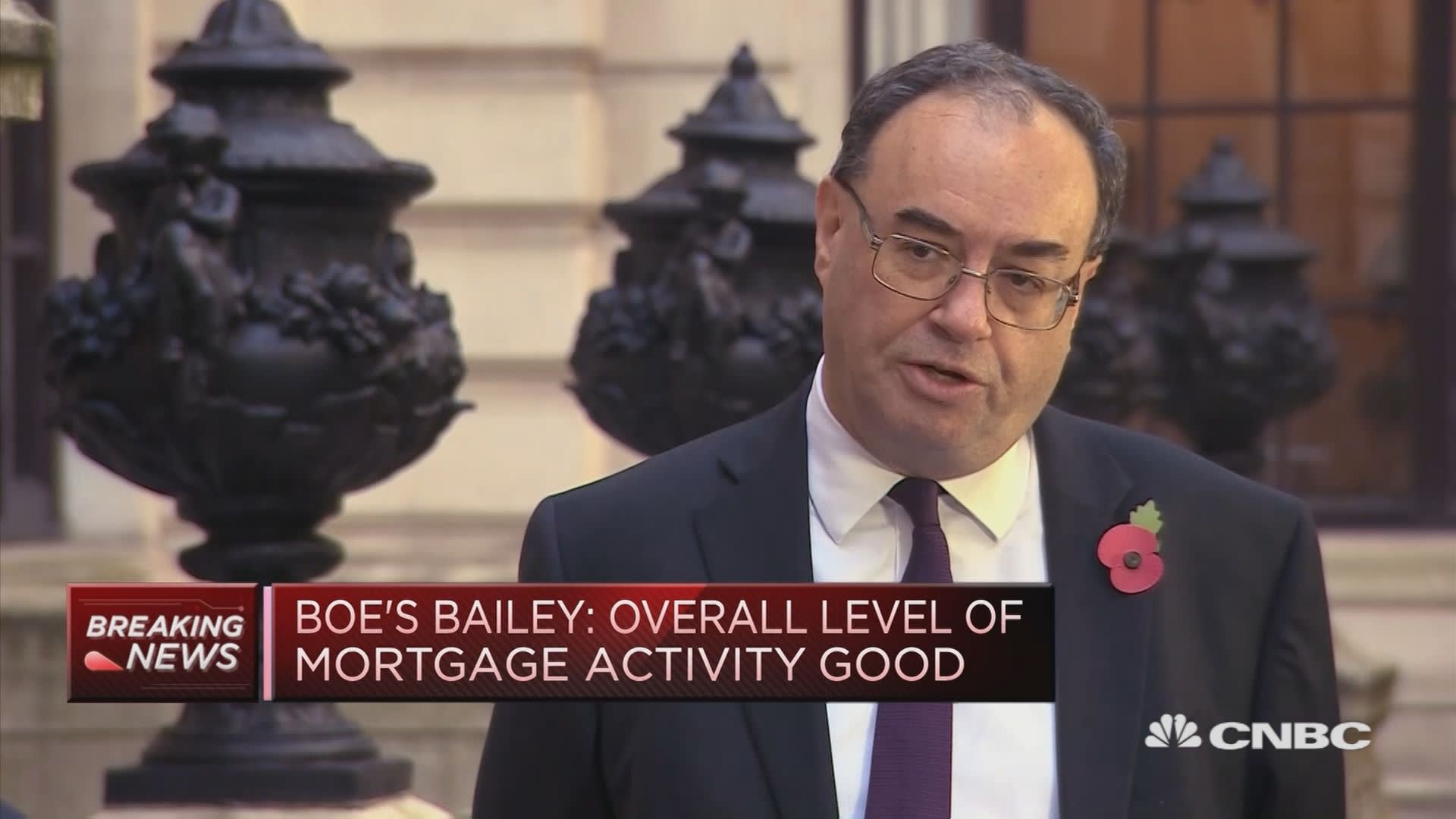Along with maintaining its main lending rate at 0.1%, the Bank of England’s Monetary Policy Committee (MPC) voted to expand its target stock
- Along with maintaining its main lending rate at 0.1%, the Bank of England’s Monetary Policy Committee (MPC) voted to expand its target stock of U.K. government bond purchases to £895 billion.
- With cases spiking in the country once again, Prime Minister Boris Johnson’s government has announced a new lockdown, running from Thursday to December 2.
LONDON — The U.K.’s central bank on Thursday held interest rates steady as England enters a fresh period of lockdown measures expected to hit the country’s economic recovery.
Along with maintaining its main lending rate at 0.1%, the Bank of England’s (BOE) Monetary Policy Committee (MPC) also voted to expand its target stock of asset purchases to £895 billion ($1.2 trillion).
Last month, the BOE asked British banks about their preparedness for negative interest rates, having revealed in September that it was exploring the possibility of taking rates below zero if necessary.
Since the onset of the coronavirus pandemic in March, the Bank has cut rates twice from 0.75% to 0.1%.
“The effect of these policies depends on the state of the world that we are in, and we are obviously in a difficult period at the moment with a further downturn,” Bank of England Governor Andrew Bailey told CNBC’s Geoff Cutmore on Thursday.
“But that doesn’t mean that we should hold back from using all the tools we can, to do everything we can, to support the economy and frankly to support people’s livelihoods.”
‘Delicate balancing act’
“For an economy faced with the headwinds of rising Covid rates, a national lockdown and a still-uncertain outlook on Brexit, a strong monetary and fiscal policy response is essential: further QE, and the recently-announced furlough scheme extension, should be viewed in this light,” said Vivek Paul, U.K. chief investment strategist at BlackRock Investment Institute.
“It is now a delicate balancing act for the Bank of England and the Government to ensure the economy is shored up without creating what might be perceived as an unsustainable debt burden.”
The British economy grew 2.1% in August, according to figures released last month by the Office for National Statistics, having suffered an unprecedented 19.8% contraction in the second quarter during the height of nationwide lockdown measures.
The BOE on Thursday projected that 2021 GDP (gross domestic product) will grow 7.25%, revised down from the +9% anticipated at its August meeting. In 2022 however, GDP is expected to grow 6.25% versus the 3.5% seen in August.
Cases spiking
With cases spiking in the country once again, Prime Minister Boris Johnson’s government has announced a new lockdown, running in England from Thursday to December 2. On Wednesday, 492 people died in the U.K. from Covid-19, the highest daily death toll since May 19, while 25,177 new cases were confirmed.
The government has also extended its furlough scheme to support sidelined workers, with the BOE now expecting unemployment to peak at 7.75% in the second quarter of 2021.
The CBI (Confederation of British Industry) said the Bank’s move would offer reassurance to businesses, but emphasized that monetary policy can only go so far. Finance Minister Rishi Sunak is set to speak later on Thursday.
CBI Lead Economist Alpesh Paleja in a statement Thursday outlined five steps for the U.K. economy to “weather the winter storm.”
“We need to keep Covid-secure firms as open as possible, provide assurances that the government’s financial and employment support will last the course, put in place a transparent exit plan for lifting lockdown, roll out mass testing without delay, and involve business in decision-making,” he said.
Source : www.cnbc.com

